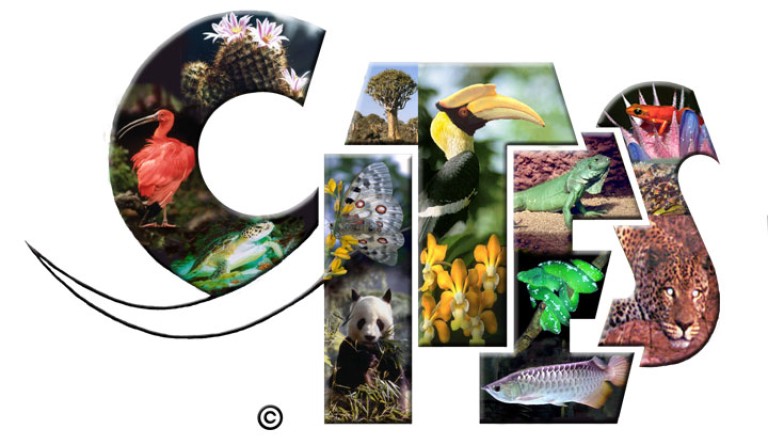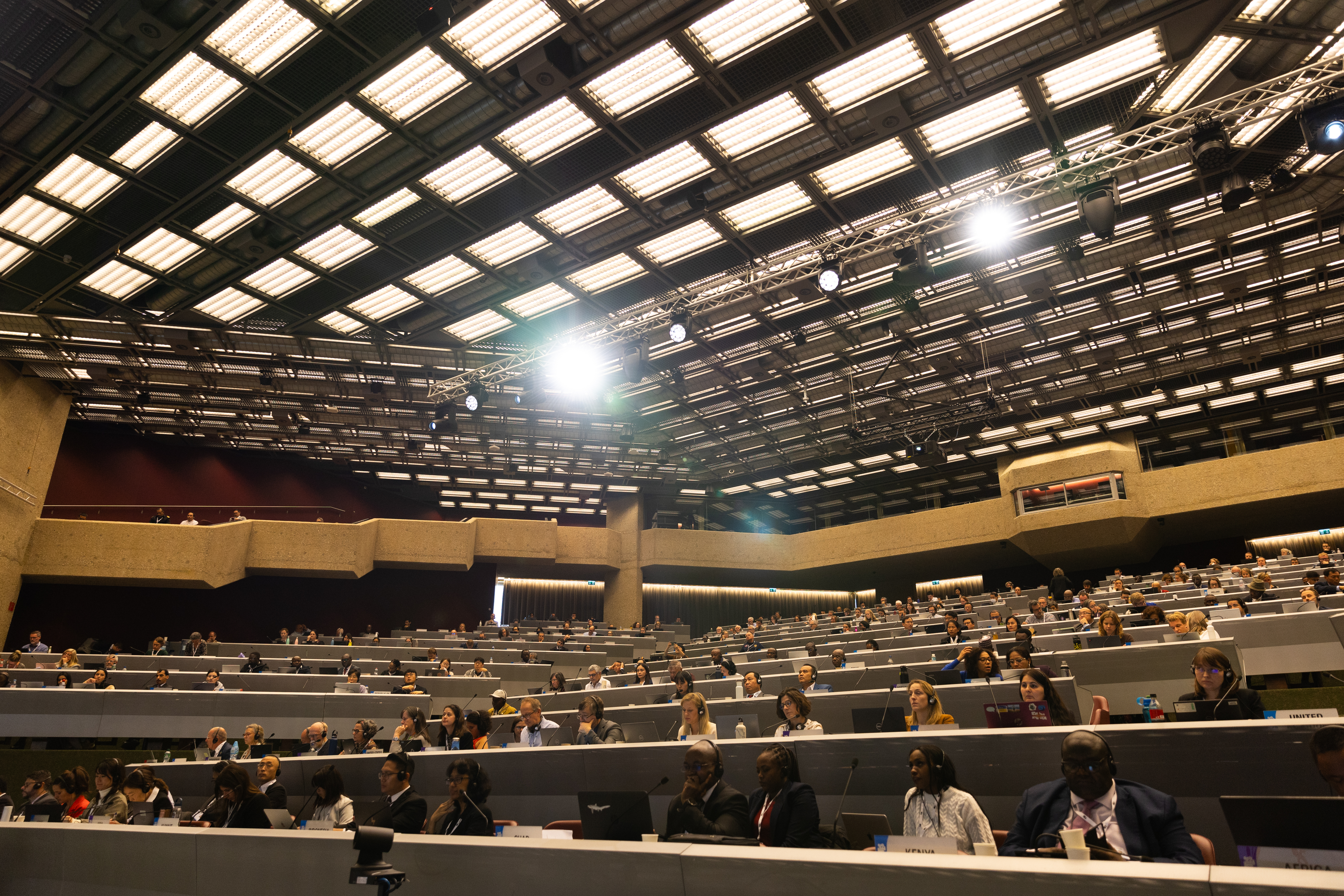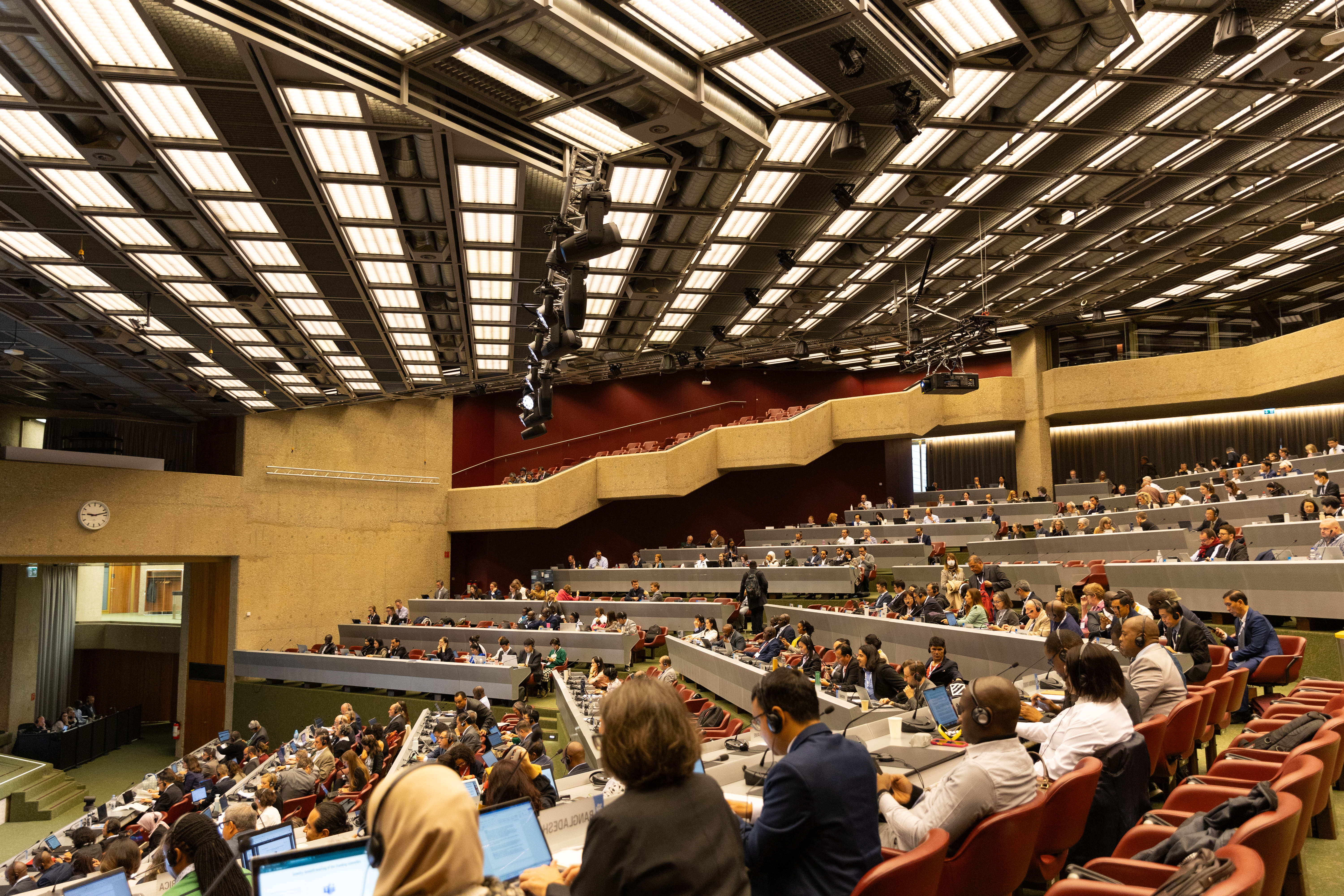

17.11.2023
ATIBT actively participated in the 77th meeting of the CITES Standing Committee, which took place in Geneva from November 6 to 10, 2023. Over 400 delegates and observers from around the world converged at this session, marking a key moment in international efforts to conserve biodiversity.

With 184 member states, CITES aims to preserve biodiversity by regulating global trade in endangered species. The convention covers some 38,000 species of plants and animals, promoting their survival while supporting the livelihoods of local populations and preserving the global environment.
The CITES permit system plays a crucial role in ensuring sustainable, legal and traceable international trade in CITES-listed species. It also contributes to local livelihoods and the global economy, aligning actions with the United Nations Sustainable Development Goals.
During the session, several highlights emerged.
The need to strengthen collaboration with the European Union's SGR (Scientific Review Group) to facilitate the issuance of CITES import permits to the EU.
At the initiative of CAFIM and CSFI, in collaboration with other musical instrument groups such as IPCI France Europe, EILA - IPCI USA, League of American Orchestra, Taylor Guitars, and ATIBT, a meeting was held on November 9, 2023 in Geneva with the CITES delegation of the European Union to discuss the new sustainability criteria for Non-Detriment Finding Trade Notices. This meeting highlighted the communication difficulties between EU CITES and the various stakeholders.
It is important to note that as of January 2023, EU CITES has ceased issuing import permits to the EU for wood of Appendix II species from the non-permanent domain. Unfortunately, no official communication has been made by the EU on this subject, despite the potentially devastating consequences for companies in the musical instrument sector. It is also pertinent to point out that the proposal contained in PC26 Doc. 18 (concerning sustainability criteria) did not receive the support of several committee members, as evidenced by the exchanges between 1:13 and 1:48 in the recording. The Plants Committee took into account the concerns expressed in PC26 Doc. 18 and recommended that the Secretariat issue a Notification to the Parties in order to transmit comments in response to this document to the European Union.
The ATIBT has expressed its willingness to work with the EU and importers to develop tools to facilitate communication and the issuance of CITES import permits to the EU. This approach aims to alleviate the difficulties encountered by the various players, particularly those in the musical instruments sector.
 ATIBT
ATIBT
The necessity to coordinate actions with other Parties and observer organizations at CITES meetings
In the context of the implementation of Article XIII, Cameroon and the Democratic Republic of Congo have outlined their efforts to ensure compliance with the Convention, as detailed in documents SC77 Doc. 33.4 and SC77 Doc. 33.6 respectively. Generally speaking, it appears that these countries have stepped up their actions in (i) managing the trade in Pericopsis elata specimens, (ii) drafting legislation and combating fraud, and (iii) issuing export permits, as well as setting up information systems (SIGIF2 for Cameroon).
Following prior mobilization, the elements presented by these two countries received significant support from other nations in the region. Consequently, the Standing Committee concluded that it would closely examine the progress made by Cameroon and the DRC, assessing whether this progress was sufficient, or whether it was necessary to recommend compliance measures. This approach underlines the importance attached to ongoing monitoring of national efforts to comply with the Convention's commitments, with the possibility of intervening where necessary to ensure effective implementation.
The importance of ensuring overall compliance with the Convention, for both flora and fauna, and the enforcement of national CITES laws
Indeed, the absence of information may lead one or more parties to recommend that the Secretariat send a Notification to the Parties, urging them all to suspend trade in CITES-listed species with the country concerned, until the said country submits the required information to the Secretariat. This recommendation was suggested, notably for Gabon and the Democratic Republic of Congo, in document SC77 Com. 5 on the submission of progress reports on the implementation of CITES National Ivory Action Plans (NIPs). Following explanations provided by the representatives of the DRC and Gabon, these recommendations were not taken into account, and these countries were granted additional time to prepare the required documents. In the same document SC77 Com. 5, recommendation (iii) states "in the absence of a satisfactory response from the Congo, requests the Secretariat to issue a notification to the Parties recommending that all Parties suspend trade in CITES-listed species with the Congo until such time as that Party has submitted a progress report to the Secretariat confirming that progress has been made in implementing its NIPs".
Furthermore, in document SC77 Doc. 31 (Rev.1), certain countries are required to provide documentation demonstrating compliance with national laws implementing the Convention within 60 days. Recommendation 38.b states that "all Parties should be recommended to suspend trade in all CITES-listed species for commercial purposes with Comoros, Congo (read "Republic of Congo"), Dominica, Ecuador, Libya, Mongolia and Sierra Leone. The Secretariat will inform the Parties concerned of this measure immediately after the present meeting. The Recommendation will enter into force 60 days after its adoption, unless the Party concerned adopts appropriate measures before the expiry of the 60 days or takes significant and substantial steps in this direction. After the expiry of the 60-day period from the date on which the recommendation was adopted, the Secretariat will send a notification to the Parties informing them that the recommendations to suspend trade will take effect from that date."
The 77th meeting of the CITES Standing Committee highlighted critical issues for biodiversity conservation and the sustainability of international trade. ATIBT remains committed to contributing to collaborative solutions, stressing the importance of transparent communication and coordinated action to ensure continued compliance with the convention.
 ATIBT
ATIBT